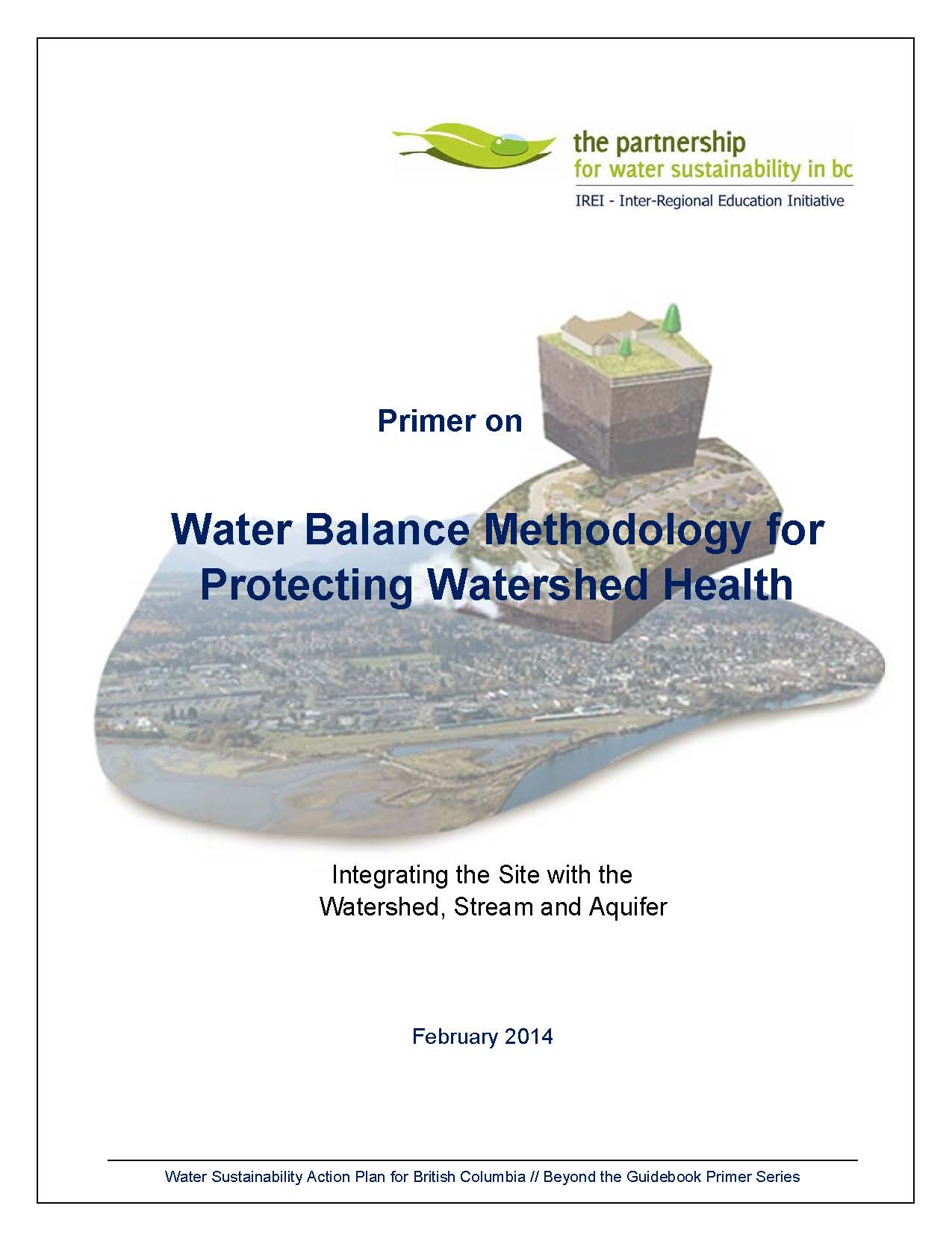GUIDANCE DOCUMENT: An Introduction to the Water Balance Methodology for Protecting Watershed Health
Integrate the Site with Watershed, Stream and Aquifer
Released in February 2014, the Primer on Water Balance Methodology for Protecting Watershed Health is primarily written for a technical audience, and provides the water resource practitioner with how-to-guidance for applying an analytical process to establish Watershed-based Targets that “mimic the Natural Water Balance”.
Make Informed Decisions
In April 2014, the Partnership for Water Sustainability in BC released a supplementary guidance document titled “An Introduction to the Water Balance Methodology for Protecting Watershed Health”.
 “The purpose of this short-form document is to provide local government staff and others with a ‘what you need to know’ overview of the Water Balance Methodology. The desired outcome is that this will facilitate informed decision-making that results in development and implementation of affordable and effective performance targets,” explains Richard Boase (District of North Vancouver), Partnership Vice-President and Water Balance Model Co-Chair.
“The purpose of this short-form document is to provide local government staff and others with a ‘what you need to know’ overview of the Water Balance Methodology. The desired outcome is that this will facilitate informed decision-making that results in development and implementation of affordable and effective performance targets,” explains Richard Boase (District of North Vancouver), Partnership Vice-President and Water Balance Model Co-Chair.
Demonstrate Effectiveness of Mitigation Measures
“The water balance of a watershed is complex. It is also a topic which has suffered from descriptions that oversimplify the processes to such an extent that unintentional adverse consequences may be occurring as a result of application of commonly employed  prescriptive practices. The Partnership’s goal is to address and rectify this issue of concern,” adds Jim Dumont, the Partnership’s Engineering Applications Authority.
prescriptive practices. The Partnership’s goal is to address and rectify this issue of concern,” adds Jim Dumont, the Partnership’s Engineering Applications Authority.
“The Primer on Water Balance Methodology lays the foundation for the integration of watershed information into a system of analysis that allows a practitioner to describe how the streams in a watershed are impacted by urban development.”
“The Water Balance Methodology provides a logical and straightforward way to assess potential impacts resulting from urban development; and analytically demonstrate the effectiveness of the methods proposed for preventing and/or mitigating those impacts,” emphasizes Jim Dumont.
To Learn More:
To download a PDF copy, click on “An Introduction to the Water Balance Methodology for Protecting Watershed Health”

How Performance Targets for Storage, Infiltration and Flow Release are incorporated in a Rain Garden Design (image source: “Stormwater Source Control Design Guidelines 2012 , Metro Vancouver, British Columbia)


